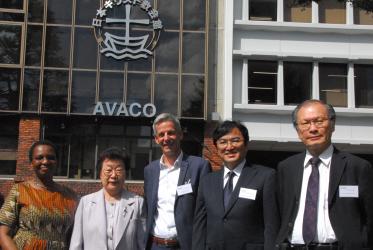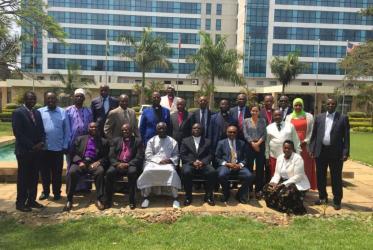Displaying 1 - 20 of 42
“Gathering in Grief” mourns Rev. Phumzile Mabizela
07 July 2021
South Sudan Church leaders welcome new cabinet
15 March 2020
In Japan, theologians reflect on today’s global manifestations of racism
18 September 2019
A passionate Korean feminist and ecumenist
21 August 2019
WCC represented at G20 Interfaith forum in Tokyo
13 June 2019
Peacemakers at work in Sri Lanka
29 April 2019
Peace is common denominator of all major religions
05 March 2019
WCC leader offers Steve de Gruchy Memorial Lecture
24 April 2018
Unifying faiths in peace and harmony through dialogue
10 April 2018
WCC delegation visits China
04 January 2018
In Nigeria, WCC workshops focus on human rights
04 December 2017
African women embark on pilgrimage in Burundi
29 November 2017











